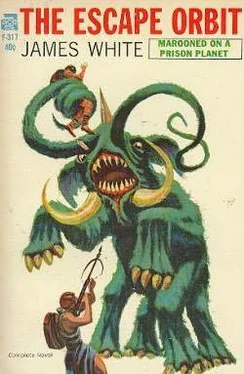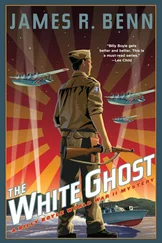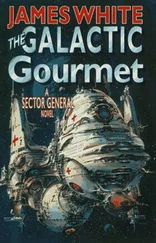James White - The Escape Orbit
Здесь есть возможность читать онлайн «James White - The Escape Orbit» весь текст электронной книги совершенно бесплатно (целиком полную версию без сокращений). В некоторых случаях можно слушать аудио, скачать через торрент в формате fb2 и присутствует краткое содержание. Город: New York, Год выпуска: 2011, Издательство: Ace Books, Жанр: Фантастика и фэнтези, на английском языке. Описание произведения, (предисловие) а так же отзывы посетителей доступны на портале библиотеки ЛибКат.
- Название:The Escape Orbit
- Автор:
- Издательство:Ace Books
- Жанр:
- Год:2011
- Город:New York
- ISBN:нет данных
- Рейтинг книги:5 / 5. Голосов: 1
-
Избранное:Добавить в избранное
- Отзывы:
-
Ваша оценка:
- 100
- 1
- 2
- 3
- 4
- 5
The Escape Orbit: краткое содержание, описание и аннотация
Предлагаем к чтению аннотацию, описание, краткое содержание или предисловие (зависит от того, что написал сам автор книги «The Escape Orbit»). Если вы не нашли необходимую информацию о книге — напишите в комментариях, мы постараемся отыскать её.
The Escape Orbit — читать онлайн бесплатно полную книгу (весь текст) целиком
Ниже представлен текст книги, разбитый по страницам. Система сохранения места последней прочитанной страницы, позволяет с удобством читать онлайн бесплатно книгу «The Escape Orbit», без необходимости каждый раз заново искать на чём Вы остановились. Поставьте закладку, и сможете в любой момент перейти на страницу, на которой закончили чтение.
Интервал:
Закладка:
Fifteen years was not a reasonable time, Warren insisted. He suggest an absolute top limit of three years.
“… According to Lieutenant Kelso, most of the data we need is available on this Post,” Warren concluded, his tone becoming slightly more friendly, “and I intend going into it fully with you now. So I’m afraid, gentlemen, that the lights will not go out in this building, nor will any of you see your bunks, until together we have set a date for the Escape…”
The faces along the table looked chastened in varying degrees by the tongue-lashing which had gone before and startled by his bombshell regarding the setting of the escape date. But these emotions gave way quickly to a steadily mounting excitement which was reflected in shining eyes and lips which were trying hard not to smile. There was no incredulity, no objections, no verbal response of any kind, and Warren knew suddenly that these officers did not have to be driven to do their duty and he should have realized that. Watching them he felt the warm, tingling contagion of their excitement again and all at once he wanted to praise and compliment them for what they were and for the glorious and nearly impossible thing they were trying to do. But a Sector Marshal did not pay such compliments to junior officers, even when they were deserved. It was very bad for discipline.
Instead he allowed his manner to thaw some more and said, “I’m a reasonable man, however. At this time I won’t insist on setting the hour…”
Chapter 6
It was E-Day minus one thousand and thirty-three and the officers on the Post were beginning not to smile self-consciously when they referred to it that way, and they did not smile at all if they were discussing it with the Sector Marshal.
Warren had taken over the main administration building as his headquarters, partitioning off one corner of the big room into an office and sleeping quarters. The office portion, which had a hole in the roof to accommodate the ladder going to the communications platform, was so placed that all maps, records, dossiers, Post personnel, messages via drum or heliograph and an appreciable quantity of rain reached him with the minimum amount of delay. The office gave an illusion of privacy, although the high walls were so thin that every word carried clearly to the men and women he had staffing the outer room.
Present for their regular morning meeting were Major Sloan, the officer in charge of Supply and Assault Training, Major Hynds of Intelligence, and Lieutenant Kelso, whose job was Coordination—Major Hutton having returned to his subterranean smithy two weeks previously, taking with him seven officers from Victorious whose training, past hobbies and/or present enthusiasm made them useful to him.
When the salutes had been exchanged and the men stood at ease, Warren said briskly, “It goes without saying that our work in the past has been seriously hampered by the fact that the so-called Civilians outranked the officers on the Committee. And that the same situation occurs within the Committee in that officers who possess ability often do not possess the rank which should go with it. In order to act effectively such officers must employ flattery and cajolery and similar verbal stratagems, and this you will admit is a gross waste of time and ability.
“While my rank gives me wide powers in the matter of promoting able officers serving under me,” Warren continued, “I am forbidden to execute this power while held prisoner of war. But this does not mean that I cannot employ the principles of general staff command and relay my orders through junior officers, delegating such authority as seems necessary. This being so, the present heads of subcommittees are hereby appointed to my Staff and Lieutenant Kelso, because of his recognized ability to handle people nominally his superior, will become my personal aide…”
Warren paused to note their reactions. Kelso and Hynds were grinning hugely and Sloan was showing more teeth than usual. They all had an anticipatory gleam in their eyes as if mentally rehearsing what they would say the next time they met the Fleet Commander or any other high-ranking Civilian. In short, the reaction was as expected.
Tapping the uneven wood of his desk for emphasis, Warren resumed sternly, “As officers on my staff, you will accord your seniors, whether Committee or otherwise, the respect due their rank. You will pass on my orders but you will not throw my weight around. You will be polite and respectful at all times, but you will not accept no as an answer at any time…!”
More than any other single factor, the success of the Anderson Plan hinged on the presence in the escape area of a tremendous volume of manpower, every single unit of which would have to be trained and rehearsed in their movements beyond any possible chance or error. Hutton’s section could be counted on to prepare the dummy ship sections and train the technical support groups, while Hynds and Sloan took care of communications and the assault. But transporting the metal sections to the escape area and assembling them all within the severely limited time during which the guardship’s orbit took it below the horizon was an operation far beyond the capability of the Committee at its present strength.
Their first concern, therefore, must be to gain recruits.
As Warren saw it, the reasons for an officer leaving the Committee were three-fold. Serving with the Committee was a hard life, the hardship was pointless since they had come to believe the Committee’s objective impossible of fulfillment, and since they were unable to take part in the war the sensible course seemed to be to enjoy their enforced peace.
From his study of the available data, however, Warren went on to explain, he was pretty sure that the consciences of these officers gave them considerable trouble—a significant indication being the touchy way most of them reacted to being called Civilians. So, if it could be shown that the escape plan was more than just a pipe dream, and if certain of the rules which hitherto had been necessary for Committee membership were to be relaxed somewhat, Warren was certain that many of the so-called deserters could be persuaded to rejoin.
The first step would be for the Committee to wipe out of its collective mind the word “Civilian.” All non-Committee officers would be treated with respect, and the respect should be in no way diminished merely because the officer held different opinions from one’s own. They must be made to feel needed and important, that their cooperation was vital to the success of the plan—which was in fact the case. Even partial cooperation, part-time membership on the Committee, would be welcomed. The main thing was to instill the idea into the prisoner’s minds that the escape was possible, that it would take place .
“… With that fact generally accepted,” Warren continued, “we will be in position to bring more direct pressure to bear … Yes, Lieutenant?”
At the news that he was to be Warren’s aide, a position which in effect made him second-in-command and chief advisor to the Marshal, Kelso’s face had displayed a look of almost wolfish pleasure. But as Warren had elaborated on his plans the Lieutenant had become increasingly restive. Something was definitely bothering him.
“Security, sir,” he burst out, then hesitated. “You shouldn’t discuss details with … with…” He nodded violently towards the partition. “There are women out there, sir!”
Warren toyed for a few seconds with a selection of sarcastic retorts, then pushed them reluctantly aside. He said, “Explain yourself, please.”
Kelso opened with some muttered remarks to the effect that he approved of women in general and of the surviving female officers from Victorious in particular, and that they had been very efficient in chasing up Committee records and progress reports for the Marshal. Nonetheless, the unpleasant fact had to be faced that women on the Escape Committee had demonstrated time and time again that they were a bad risk. Kelso went on to cite instances, and Major Hynds nodded agreement each time. For the best interest of the movement, the Lieutenant insisted, all female officers should be gotten rid of as quickly as possible, because girls were born to be civilians…
Читать дальшеИнтервал:
Закладка:
Похожие книги на «The Escape Orbit»
Представляем Вашему вниманию похожие книги на «The Escape Orbit» списком для выбора. Мы отобрали схожую по названию и смыслу литературу в надежде предоставить читателям больше вариантов отыскать новые, интересные, ещё непрочитанные произведения.
Обсуждение, отзывы о книге «The Escape Orbit» и просто собственные мнения читателей. Оставьте ваши комментарии, напишите, что Вы думаете о произведении, его смысле или главных героях. Укажите что конкретно понравилось, а что нет, и почему Вы так считаете.












